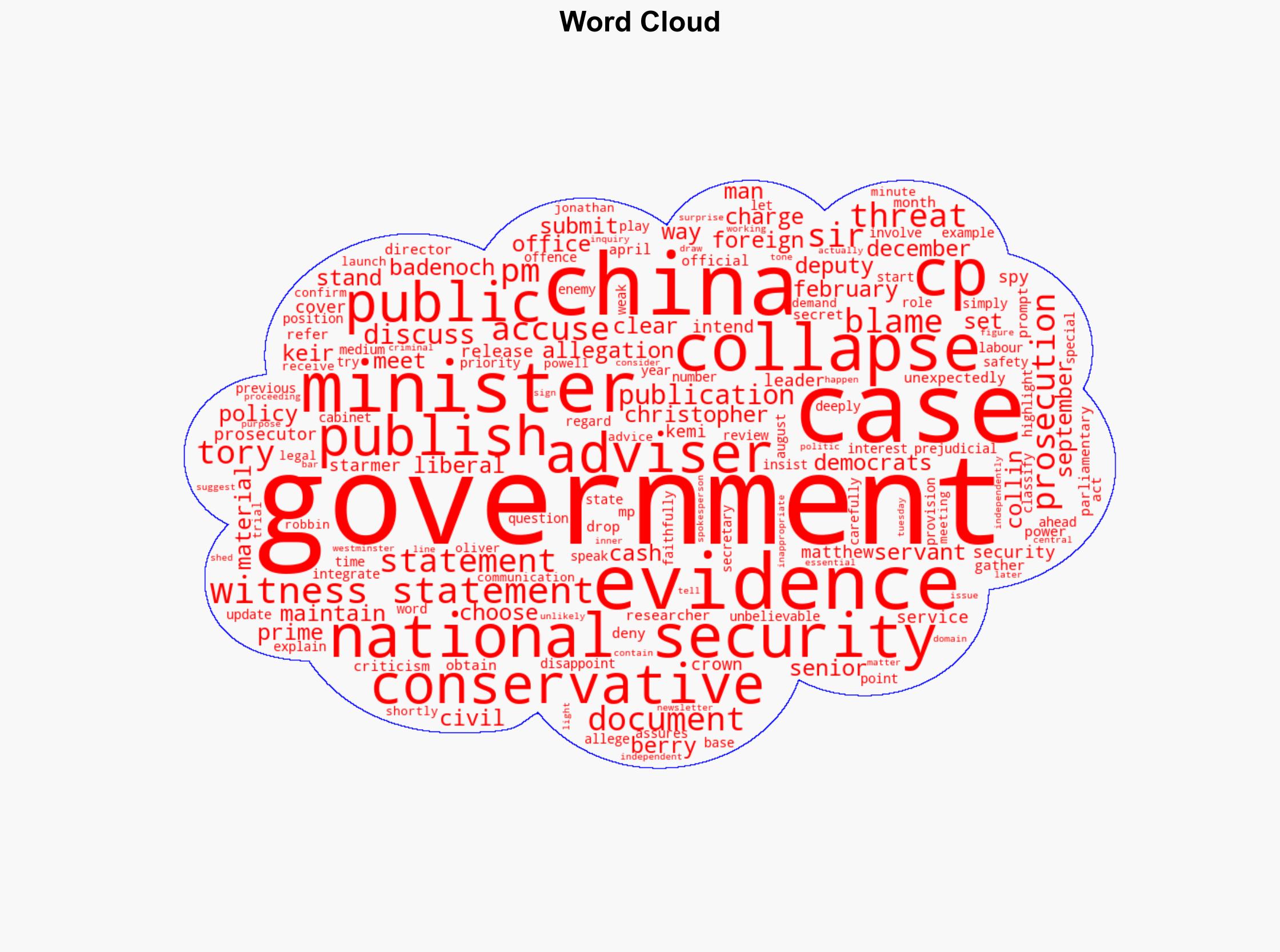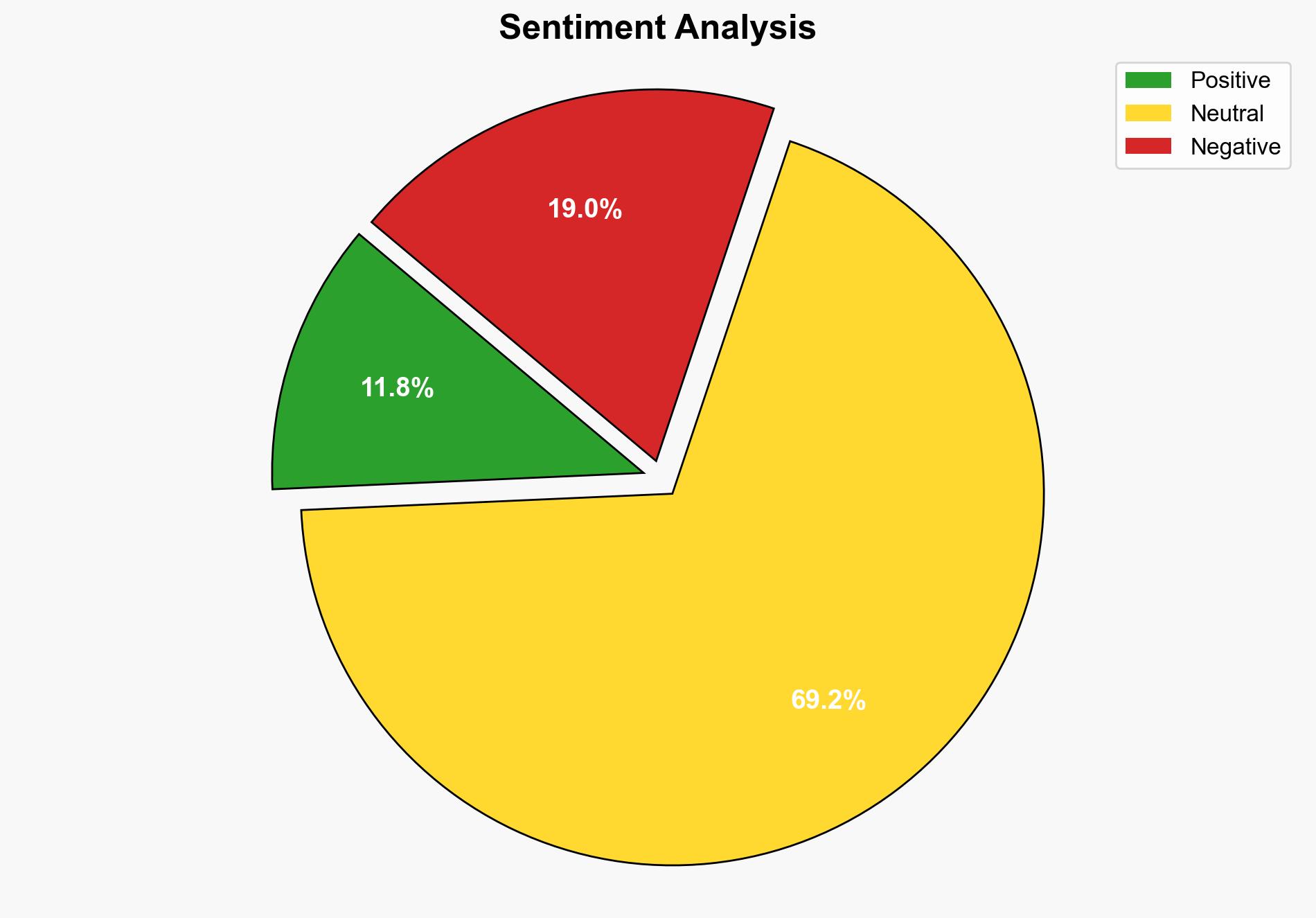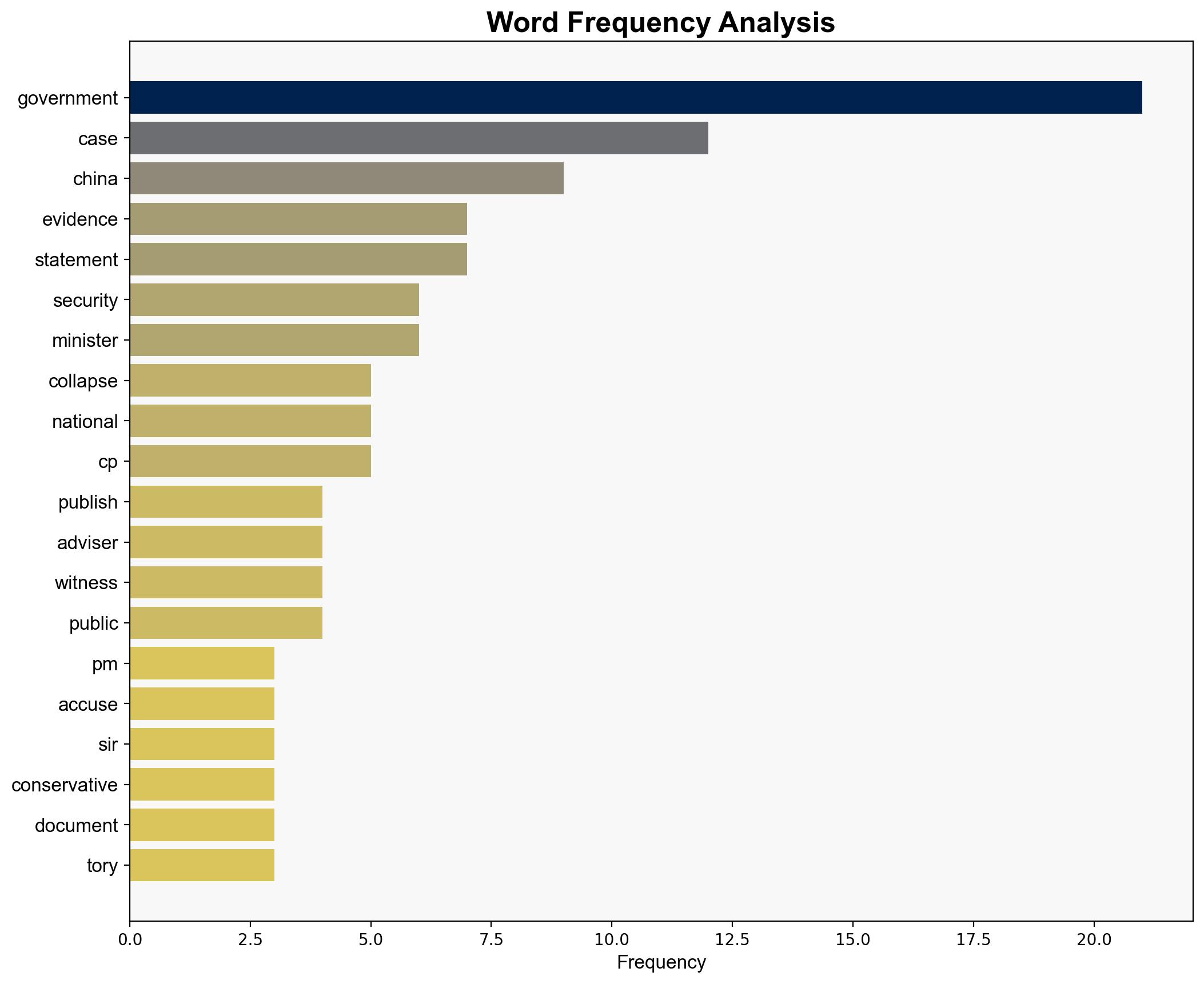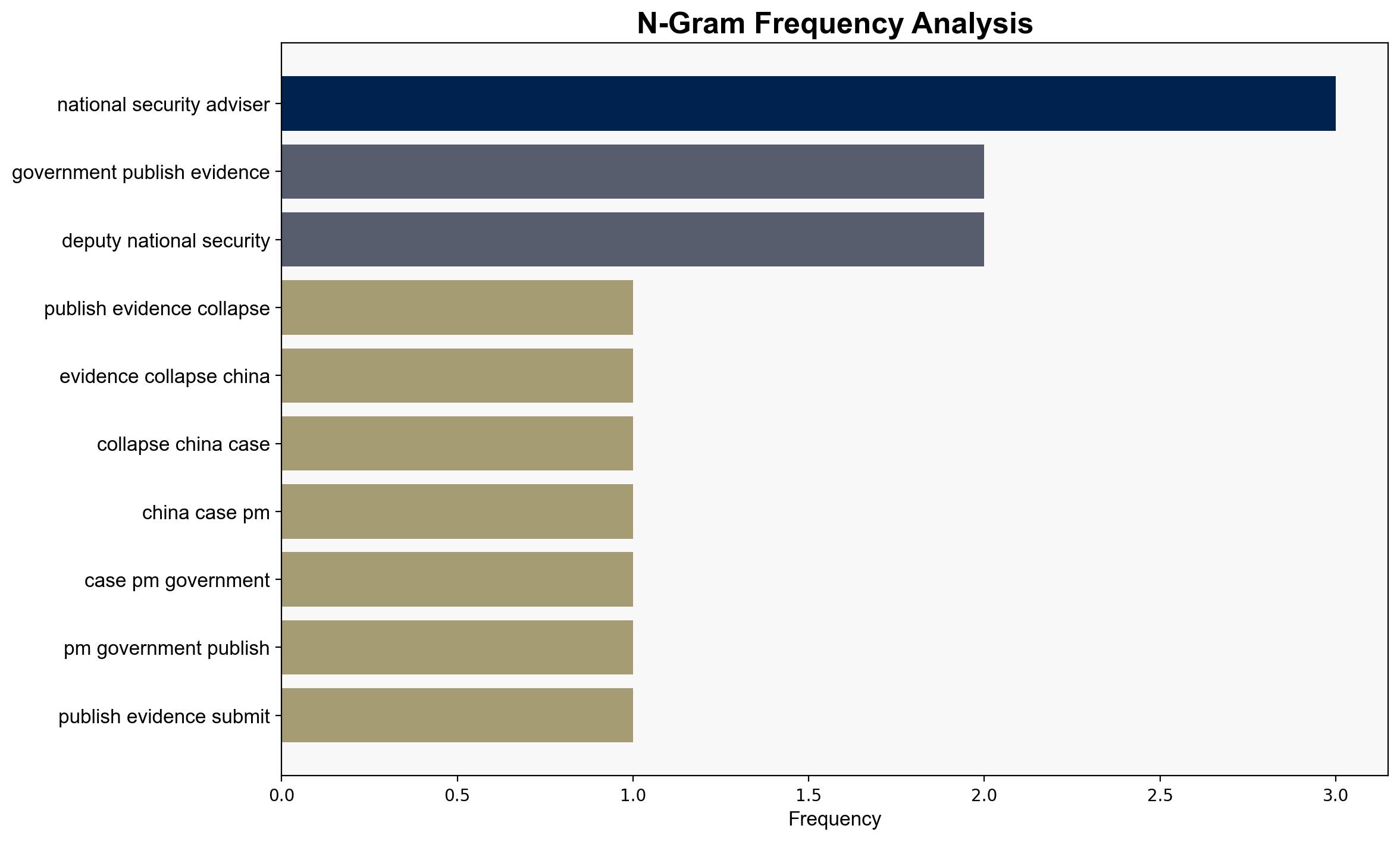Labour under pressure to release collapsed China spy case evidence – BBC News
Published on: 2025-10-15
Intelligence Report: Labour under pressure to release collapsed China spy case evidence – BBC News
1. BLUF (Bottom Line Up Front)
The most supported hypothesis is that the collapse of the China spy case was due to insufficient evidence and internal procedural issues, rather than a deliberate cover-up. Confidence level: Moderate. It is recommended that the government transparently release non-sensitive evidence to restore public trust and address national security concerns.
2. Competing Hypotheses
1. **Hypothesis A**: The case collapsed due to insufficient evidence and procedural missteps within the Crown Prosecution Service (CPS), unrelated to political interference.
– **Structured Analysis**: ACH 2.0 suggests that the unexpected dropping of charges and the CPS’s statement about the inappropriateness of publishing witness statements support this hypothesis. The lack of clear evidence of political interference strengthens this interpretation.
2. **Hypothesis B**: The case was deliberately collapsed due to political pressure or a cover-up to avoid diplomatic tensions with China.
– **Structured Analysis**: Cross-Impact Simulation indicates that accusations from political figures and the demand for transparency could suggest political motivations. However, the absence of concrete evidence of interference weakens this hypothesis.
3. Key Assumptions and Red Flags
– **Assumptions**:
– Hypothesis A assumes the CPS operates independently and without undue influence.
– Hypothesis B assumes political figures have the capability and motive to influence legal proceedings.
– **Red Flags**:
– Lack of transparency in the evidence and decision-making process.
– Contradictory statements from government officials and political figures.
– **Blind Spots**:
– Potential undisclosed diplomatic communications with China.
– Internal CPS deliberations not publicly available.
4. Implications and Strategic Risks
– **Geopolitical Risks**: Continued perception of a cover-up could strain UK-China relations and impact international alliances.
– **Domestic Risks**: Erosion of public trust in government institutions and legal processes.
– **Economic Risks**: Potential impact on trade relations with China if diplomatic tensions escalate.
– **Cybersecurity Risks**: Increased vulnerability to espionage if national security protocols are perceived as weak.
5. Recommendations and Outlook
- **Mitigation**: Release non-sensitive evidence to the public to enhance transparency and trust.
- **Exploitation**: Strengthen internal procedures within the CPS to prevent future procedural failures.
- **Scenario Projections**:
– **Best Case**: Transparent handling restores trust and strengthens national security protocols.
– **Worst Case**: Continued secrecy leads to public unrest and diplomatic fallout.
– **Most Likely**: Partial transparency with ongoing political debate but limited long-term impact.
6. Key Individuals and Entities
– Keir Starmer
– Matthew Collin
– Christopher Cash
– Christopher Berry
– Kemi Badenoch
– Jonathan Powell
– Oliver Robbin
7. Thematic Tags
national security threats, cybersecurity, counter-terrorism, regional focus





